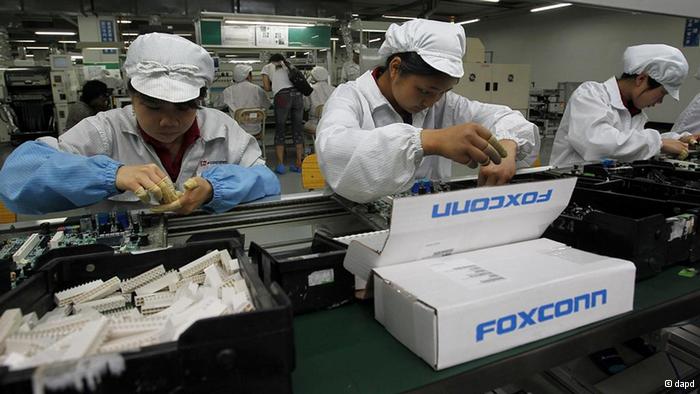
Apple’s reputation for quality is one that we are all familiar with. But there is also a more insidious, darker undertone that we know just as well: allegations of labor abuses in China, child labor and coercion.
Recently, Foxconn Technology, Apple’s primary manufacturing partner, was accused of mismanaging its labor force, forcing student interns to work at manufacturing lines and make iPhones and iPhone parts.
“It’s terrible news,” Alice Choi, LA Center for Enriched Studies junior, says. “This kind of abuse [if it had occurred] is horrible and a breach of ethics.” Foxconn has denied the allegations that it forced its interns to work at manufacturing lines, indicating that although they were asked to work at the lines, they were by no means forced to do so.
“I can’t judge if there actually is this kind of abuse going on there,” Choi admits. “There are a lot of rumors surrounding Apple, such as in how Apple may use child labor.” A number of these rumors, often in small pockets in Apple’s giant network of suppliers, have been proven since. “What we all do know is that it damages Apple’s reputation as a reliable company.”
The rumors coming so close to the inception of the new iPhone 5, a new Apple product, are troubling. But the real problem goes beyond how this sudden blow may affect how the iPhone 5 will be anticipated, and draws us into the real problem of regulating our companies and ensuring aboveground policies and actions. The problem stretches beyond just Apple, who may or may not be involved in such behavior – the problem refers directly to the widespread corruption and exploitation of others, for our convenience and ease.
Apple rigorously monitors its manufacturing locations, auditing its suppliers in order to ensure that workers are treated well and given decent wages. But there appears to be little success – it is inevitable that some suppliers would exploit their labor pools in hopes of maximizing profits. In 2011, Apple admitted that it was having more trouble with child labor cases.
The problem, in part, may be Apple’s stringent policies meant to maximize Apple’s own earnings and minimize the supplier’s, by virtue that producing for a company as well known as Apple gives the supplier influence and power. Whilst this logic holds well, it doesn’t diminish the fact that suppliers try to augment their profits thus in any way that they can, be it ethical or no.
But more than that, the problem stems from our own inertia. We rarely stop to think of the consequences of cheap, efficient Apple products – yes, they ultimately make our lives easier, but at the expense of a multitude of others, who are coerced into creating these items for us for smaller and smaller opportunities.
Today, the vast majority of us already have iPhones, iTouches, iPads and iPods. The most technologically ignorant of us is savvy with Apple’s name and products. And this eminence puts Apple on a spotlight – anything that appears to be amiss is scrutinized under bright floodlights. But Apple is only part of the problem, and is only a single link in a vast network of such exploitation. So with the new Foxconn allegations and accusations of abusing student interns, instead of pointing the finger at Apple, search for a real solution – one that doesn’t involve pointing out a scapegoat. Apple is only a single link, and if we choose to focus the full glare of our spotlights on Apple, we’ll miss the greater and more worrying picture.

